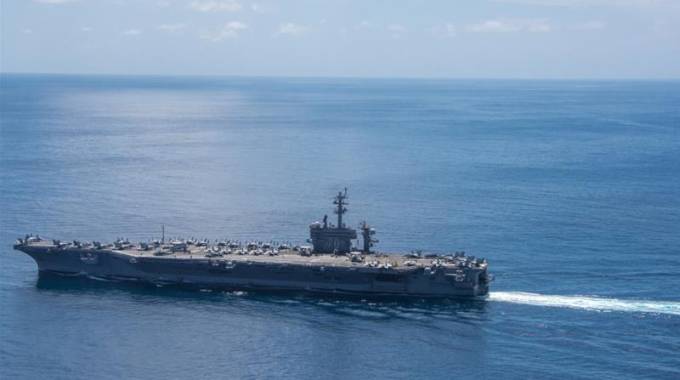Mauritius takes UK to court over Chagos Islands sovereignty

THE HAGUE. – The UK’s possession of a remote archipelago in the Indian Ocean that includes the strategic US airbase of Diego Garcia is being challenged at the international court of justice.
Despite British attempts at the United Nations to prevent Mauritius’s claim to the Chagos Islands reaching The Hague, judges will spend four days from Monday (yesterday) hearing representatives from 22 countries arguing over colonial history and the rights of exiled islanders to return.
The overwhelming majority of states intervening in the dispute oppose Britain’s assertion that it has sovereignty over what it calls British Indian Ocean Territory, or BIOT.
Only the US, Australia and Israel are expected to support the UK.
Judgment from the UN-backed court, which specialises in territorial and border disputes between countries, will be advisory, rather than legally binding. Nonetheless, it is likely to be interpreted as a sign of the UK’s international influence.
The row between Mauritius and the UK has become increasingly acrimonious.
The ICJ hearing follows a humiliating defeat in the UN general assembly last year when 94 countries supported a Mauritian-backed resolution to seek an opinion from the ICJ on the legal status of the Chagos Islands.
Only 15 countries were opposed.
The court will consider two key questions: the first is whether the decolonisation of Mauritius was completed lawfully when it was granted independence in 1968 following its separation from the Chagos archipelago; the second concerns the ability of Mauritius to resettle its nationals, who were originally deported from the archipelago, back on the islands.
Three years before Mauritius was granted independence, the UK decided to separate the Chagos Islands from the rest of its Indian Ocean colony.
The Mauritian government claims this was in breach of UN resolution 1514, passed in 1960, which specifically banned the breakup of colonies before independence.
Most of the 1,500 islanders were deported so that the largest island, Diego Garcia, could be leased to the US for a strategic airbase in 1971. The islanders have never been allowed to return home.
The UK has promised to return the Chagos Islands to Mauritius when they are no longer needed for defence purposes, but refuses to give a date.
The UK’s international position has become increasingly isolated. In a second defeat at the UN last November, Britain failed to secure the re-election of Sir Christopher Greenwood to the ICJ, resulting in Britain not having a judge on the bench of the court for the first time in its 72-year history.
Many deported Chagossians live in the UK. In July, they held a four-day protest in Trafalgar Square against their continued exile and their descendants’ uncertain immigration status in the UK.
A report by the Commons home affairs committee in July warned that there were parallels with the Windrush scandal and that anyone descended from a person born on the Chagos Islands should be able “to register as a British overseas territories citizen and thereby have a right to remain in the UK”.
The UK’s attorney general would normally be expected to appear in such cases but because Geoffrey Cox QC MP has previously acted as standing counsel to the government of Mauritius, he has stepped aside and the solicitor general, Robert Buckland QC MP, will represent the government.
A Foreign Office spokeswoman said: “We are disappointed that Mauritius have taken this bilateral dispute to the international court of justice … This is an inappropriate use of the ICJ advisory opinion mechanism and sets a dangerous precedent for other bilateral disputes. We will robustly defend our position.
“While we do not recognise the Republic of Mauritius’s claim to sovereignty of the archipelago, we have repeatedly undertaken to cede it to Mauritius when no longer required for defence purposes, and we maintain that commitment.” – The Guardian, UK









Comments